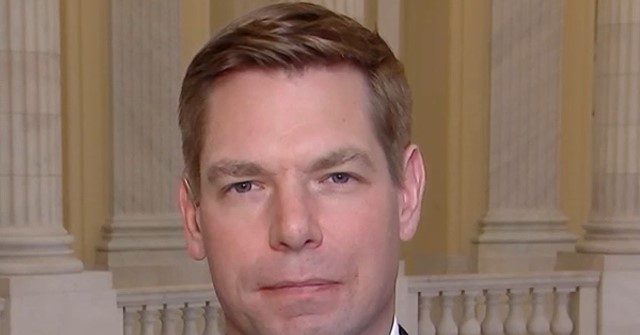On a recent episode of CNN’s “OutFront,” Congressman Eric Swalwell (D-CA) discussed the passing of a government funding bill in the House, emphasizing that it was not an improvement over the original legislation. His primary objective, he noted, was to prevent a government shutdown and ensure that essential workers, such as those in the TSA, veterans’ services, and air traffic control, receive their pay for the work they perform. Swalwell expressed disappointment with the legislative outcome, labeling it as “completely unnecessary,” yet he felt a strong responsibility to protect the livelihoods of hard-working employees who are crucial to maintaining public safety and government operations.
During the interview, host Sara Sidner probed Swalwell on whether he believed the newly passed bill was better than a bipartisan agreement that had been carefully developed over several weeks. Swalwell candidly remarked that he did not believe the new bill was superior, but his concern was rooted in the welfare of federal employees who would otherwise suffer the consequences of a shutdown. He highlighted the impact of such a situation on workers, recounting an interaction with a TSA officer who inquired about their job security. These personal stories underscored Swalwell’s commitment to the individuals behind the policies and the necessity of ensuring they are compensated for their essential roles.
Sidner further questioned whether Swalwell and other Democrats considered the potential backlash they might face if they did not support the bill, thereby contributing to a shutdown. In response, Swalwell reiterated the reality of workers dependent on government employment and the importance of acknowledging their struggles. He illustrated how public servants were facing uncertainty, urging that allowing them to go unpaid was fundamentally wrong. His remarks revealed a broader concern among Democrats about their image and responsibility in times of political conflict, as well as a desire to draw a clear distinction between the priorities of Republican and Democratic lawmakers.
Swalwell framed the political struggle as a fight between two sides with very different agendas. He characterized Republicans as focusing on the interests of wealthier Americans, while Democrats represent the needs of the broader population, particularly those living paycheck to paycheck. This dichotomy not only reflects Swalwell’s political beliefs but also serves as a larger narrative strategy aimed at painting Democrats as protectors of the working class amidst a contentious legislative landscape where budget negotiations are often tied to ideological divides.
The Congressman’s comments reveal a sincere commitment to advocating for federal employees who directly impact the daily lives of Americans. He expressed a profound sense of duty to ensure that those who ensure national security, smooth travel, and other critical services are shielded from the repercussions of political strife. In a time when public trust in government can waver due to perceived dysfunction, Swalwell’s emphasis on protecting workers signals a message of accountability and responsibility among legislators.
Overall, Swalwell’s participation in the CNN interview encapsulated the complexities and challenges faced by Democrats in navigating legislative agreements while safeguarding the interests of public employees. His approach highlights not only the immediate concerns regarding government funding and potential shutdowns but also the long-term implications of political decisions on ordinary citizens. Amidst a polarized political environment, Swalwell’s commitment to advocating for the necessary support and compensation of federal workers aligns with broader Democratic priorities, emphasizing socioeconomic fairness in government policy.

